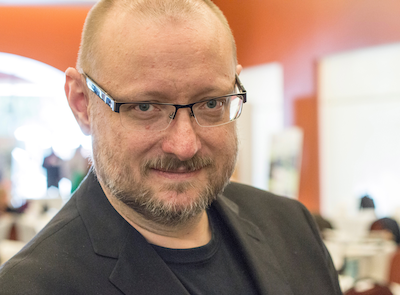Selected by Foreign Policy magazine as one of their Top 100 Global Thinkers, Jamais Cascio has explored the intersection of environmental dilemmas, emerging technologies, and cultural evolution for 25 years, specializing in plausible scenarios of the future. His work focuses on the importance of long-term, systemic thinking for building a more resilient society. In 2010, he was named a Distinguished Fellow at the Institute for the Future, and continues to work with them on a wide array of projects.
In recent years, Cascio has developed scenarios and written analysis for the 2020 World Expo, a major European automaker (resulting in a significant change in strategy), the US Forest Service, and the US Agency for International Development, among many others. In 2018, he developed the “BANI” concept as a way of understanding rapid global disruptions, now in growing use around the world. In 2017, the University of Advancing Technology awarded Cascio an honorary doctorate in recognition of his ongoing work.
Cascio’s written work has appeared in the New York Times, the Atlantic Monthly, and New Scientist magazine, among others. Cascio has been featured in multiple film documentaries and television science shows, and he speaks about future possibilities around the world. Recent appearances include the first Global Climate Engineering Conference in Berlin, the World Bank Understanding Risk conference in Venice, and the Arab Media Forum in Dubai. He was a featured speaker at the TED 2006 conference, “The Future We Will Create,” in Monterey, California. In early 2009, he released his first book, Hacking the Earth: Understanding the Consequences of Geoengineering. The subsequent year, he was invited to present on the subject at the National Academies of Sciences in Washington, DC.



